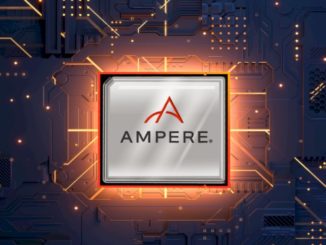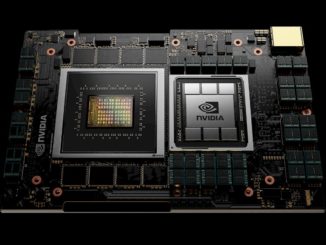
For those who have expressed concern about the slow pace of Arm’s adoption in HPC, Brent Gorda is advocating the need for patience.
Gorda, who is senior director of the HPC Business at Arm, says the company has been busy licensing Arm IP to a number of silicon partners interested in the processor architecture for both HPC and the broader server market. But most of these efforts are taking place behind the scenes. We will be talking more about this live on stage with Gorda at HPC Day with The Next Platform on Sunday, November 17th (just before SC19 gets fully underway).
According to him, unless you’re under a non-disclosure agreement (NDA) with these vendors, you’re not going to be privy to where these development efforts actually stand. In some cases, these partners are particularly tight-lipped about their intentions for Arm because their plans are rather far into the future. The bottom line, says Gorda, is that “hardware takes a long time.”
To give you a sense of how long, he points to perhaps the most noteworthy Arm development effort in HPC to date: the A64FX processor. As most of our readers are aware, the A64FX has been developed by Fujitsu and will power Japan’s first exascale supercomputer, the Fugaku (Post K) system. That chip was the result of a 10-year effort that is just coming to fruition in 2020, when the first racks are scheduled to be installed at the RIKEN Center for Computational Science.
Some of that long lead time, no doubt, is a consequence of the complexity of the A64FX. As Gorda points out, the A64FX is the first Arm processor to bring in high bandwidth memory and the first to implement Arm’s Scalable Vector Extensions (SVE) instructions. That, says Gorda is “quite a step up with what we’re used to these days.”
He points out that three of the four exascale contenders – Japan, China, and Europe — have selected Arm as the basis for at least some of their next-generation supercomputers. For example, the European Processor Initiative (EPI) is basing its general-purpose processor on the Arm architecture. If all goes according to plan, that chip will be used, along with a RISC-V-based accelerator and other custom processors, to power a fleet of European sub-exascale and exascale supercomputers in the next decade.
Gorda says Arm is more than just a licenser for the ISA, however. When required, especially for the kind of high-end designs required for HPC, they’re there to provide some hand-holding. “With partners like EPI, we are definitely offering our assistance to make sure that they succeed,” he explains.
That’s because Arm designs are more than just an ISA implementation. There are a whole bunch of other knobs to turn, including I/O interfaces, core counts, and memory bandwidth, to name a few – features than have special relevance to high performance computing.
Arm also shows up downstream with support on the software side, says Gorda. That includes things like Arm’s ServerReady program to make sure that Arm-based gear is compliant with standard OS software. Beyond that, there’s the need to provide the software tools necessary for server-side application development. That drove Arm to buy Allinea, a company that provides a full set of mature compilers, debuggers, profilers and other tools to help smooth the path for application porting.
An ongoing challenge, however, will be performance portability and that will rely on both software development tools and the capabilities of the underlying silicon. At least for the A64FX, early performance results look encouraging, says Gorda, with some application simulations demonstrating a 100x performance improvement over the older Sparc processor-based K computer.
Assuming those results prove out in real hardware, it will set the bar for future high-end Arm processors. And since these performance results will be in public domain, Gorda thinks those developing subsequent Arm chips for HPC will realize they will “need to be able to at least jump this high to be taken credibly.”
More on this and many other topics relevant to the supercomputing set coming at HPC Day, registration is still open.





Be the first to comment